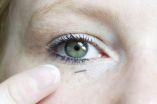September 08, 2012 (Press-News.org) The federal Food and Drug Administration (FDA) has recently convened a special advisory panel to deal with the ongoing issues arising from a number of metal-on-metal hip replacement components. An 18-member panel comprised of physicians and medical experts from around the country met to discuss the unique complications arising from the implantation of a number of different replacement hip components manufactured and distributed by:
- Johnson & Johnson/DePuy Orthopedics
- Biomet
- Wright Medical
- Zimmer Holdings
- Encore Medical
- Smith & Nephew
More recently a recall has been issued for "modular neck and stem" components manufactured by the Stryker Corporation. Even though the Stryker implants are not technically "metal-on-metal," most consumers tend to lump them together with the other ones making the news for months now.
What Is Wrong With These Implants?
Metal-on-metal hip implants first hit the market in the early 2000s, and were designed to be more durable and less prone to dislocation than traditional ceramic or plastic implants. Manufacturers and physicians recommended the metallic components because clinical trials had led them to believe the metal implants would last longer and would have less risk of dislocation than older models.
Unfortunately, the opposite was true. As the metal ball and socket parts of the implant rub against each other, they result in a condition known as "fretting." Fretting is the release of microscopic particles of metal ions like chromium, cobalt and others. A build-up of metal ions could result in chronic pain, inflammation, bone loss, tissue death and damage to organs as the ions circulate around the body.
What Actions Are Being Taken to Protect Consumers?
Following nearly 20,000 complaints of complications and injury associated with these metal-on-metal implants between 2000 and 2011, the FDA finally issued safety advisories for the devices. Several manufacturers subsequently issued their own recalls of the devices, but that action isn't necessarily good news to the estimated hundreds of thousands of patients around the world who currently have one of these potentially faulty implants in their bodies.
The FDA advisory panel recommends annual screening exams like X-rays and testing for metal particulates for patients who have one of the affected types of metal-on-metal hip implants in their bodies. It is possible than some of the defective devices will never cause the types of painful complications that have been reported around the country, but negative effects might necessitate the surgical removal of a faulty component and the implantation of a new one.
Many cases involving defective him implants have been filed nationwide against some of the largest medical device companies in the world. If you or a loved one has been injured by a defective metal-on-metal him implant -- or you have one of those devices implanted in your body and have questions -- seek the counsel of a skilled personal injury attorney in your area to learn more about your legal rights and options.
Article provided by James F. Humphreys & Associates, L.C.
Visit us at www.jfhumphreys.com
Amid Recalls, Questions Abound About Metal-on-Metal Hip Implants
Recently announced recalls bring questions from millions of patients with metal-on-metal hip implants.
2012-09-08
ELSE PRESS RELEASES FROM THIS DATE:
Florida Child Relocation: How Do You Measure a 50-Mile Move?
2012-09-08
When a child's parents are unmarried, whether through divorce or because they never chose to marry, moving the child's primary residence through parent relocation can be legally complicated. For example, if the child lives with the father in Pensacola and the mother lives nearby and regularly spends time with the child, and the father gets a job offer in Miami, may he move away with the child? The 600 miles between the parents would clearly interfere with the relationship of the child and the mother.
Florida Relocation Law
The Florida statute that controls child relocation ...
Standard chemotherapy provides equivalent survival rate to experimental in lung cancer patients
2012-09-07
Treatment with pemetrexed, carboplatin and bevacizumab followed by maintenance pemetrexed and bevacizumab (Pem+Cb+B) is no better than standard therapy with paclitaxel, carboplatin and bevacizumab followed by bevacizumab (Pac+Cb+B) in patients with advanced non-squamous non-small cell lung cancer (NS-NSCLC), according to research presented at the 2012 Chicago Multidisciplinary Symposium in Thoracic Oncology. This symposium is sponsored by the American Society of Clinical Oncology (ASCO), the American Society for Radiation Oncology (ASTRO), the International Association ...
Rust never sleeps
2012-09-07
Rust – iron oxide – is a poor conductor of electricity, which is why an electronic device with a rusted battery usually won't work. Despite this poor conductivity, an electron transferred to a particle of rust will use thermal energy to continually move or "hop" from one atom of iron to the next. Electron mobility in iron oxide can hold huge significance for a broad range of environment- and energy-related reactions, including reactions pertaining to uranium in groundwater and reactions pertaining to low-cost solar energy devices. Predicting the impact of electron-hopping ...
Alzheimer's experts from Penn Summit provide strategic roadmap to tackle the disease
2012-09-07
PHILADELPHIA –This week, a strategic roadmap to help to the nation's health care system cope with the impending public health crisis caused Alzheimer's disease and related dementia will be published in Alzheimer's & Dementia: The Journal of the Alzheimer's Association. The plan aims to link the latest scientific findings with clinical care and bring together patients, families, scientists, pharmaceutical companies, regulatory agencies, and advocacy organizations behind a common set of prioritized goals. The consensus document is the outcome of a June meeting of leading ...
Lack of support for 'ring-fencing' cancer drugs fund revealed
2012-09-07
The public oppose the cancer drugs fund but support the new pricing system for branded medicines, according to a new study.
When asked if the NHS should pay more for cancer drugs compared to medicines for an equally serious condition, the majority of 4,118 people surveyed across Britain said it shouldn't.
Medicines were favoured, however, if they met the criteria by which the value of new medicines is to be assessed as part of the value-based pricing scheme, due to be introduced from January 2014. Treatments were preferred if they were for severe diseases, if they ...
Influenza research: Can dynamic mapping reveal clues about seasonality?
2012-09-07
MEDFORD/SOMERVILLE, Mass. - Influenza outbreaks in the United States typically begin with the arrival of cold weather and then spread in seasonal waves across geographic zones. But the question of why epidemics can vary from one season to the next has baffled scientists.
In a paper titled "Deviations in Influenza Seasonality: Odd Coincidence or Obscure Consequence," Elena Naumova, Ph.D., professor of civil and environmental engineering at Tufts School of Engineering, and collaborators from the U.S. and India suggest that the search for answers has been thwarted, in ...
Needle beam could eliminate signal loss in on-chip optics
2012-09-07
Cambridge, Mass. – September 7, 2012 - An international, Harvard-led team of researchers have demonstrated a new type of light beam that propagates without spreading outwards, remaining very narrow and controlled along an unprecedented distance. This "needle beam," as the team calls it, could greatly reduce signal loss for on-chip optical systems and may eventually assist the development of a more powerful class of microprocessors.
Based at the Harvard School of Engineering and Applied Sciences (SEAS) and the Laboratoire Interdisciplinaire Carnot de Bourgogne, CNRS, in ...
The birdy smell of a compatible partner
2012-09-07
New evidence shows that birds may choose their mate with the help of smell. They prefer a dissimilar mate because this gives their young a more efficient immune system. This has been shown in a new study by researchers from Lund University in Sweden, in a Swedish-French collaboration.
Humans and many animals can choose a suitable mate by smell. Choosing a mate with the right smell can give the offspring an efficient immune system. This is because each individual's smell can be said to reflect information on the individual's genes. By finding the mate whose genes best ...
Measuring glucose without needle pricks
2012-09-07
Sticking yourself in the finger day after day: For many diabetics, this means of checking blood glucose is an everyday part of life. Especially for patients with Type-1 diabetes, who always have to keep a close eye on their levels, since their bodies are incapable of producing the insulin to break down the glucose in the blood. Several times a day, they have to place a tiny drop of blood on a test strip. It is the only way they can ascertain the blood glucose value, so they can inject the correct amount of insulin needed. And this pricking is not only a burdensome: it may ...
Unemployment causes more mental health problems among Somalis in London than in Minneapolis
2012-09-07
Somali immigrants to the UK and USA appear to integrate better and have fewer mental health problems if they are allowed to work and they receive practical support during the first few years of their time in the new country, according to a study led by researchers at Queen Mary, University of London (UK) and published in BioMed Central Public Health today (Friday). [1]
The study used a survey and focus groups to investigate the experiences of Somalis living in London (UK) and Minneapolis (USA). After adjusting for various factors such as age, sex and marital status, the ...
LAST 30 PRESS RELEASES:
Antipathy toward snakes? Your parents likely talked you into that at an early age
Sylvester Cancer Tip Sheet for Feb. 2026
Online exposure to medical misinformation concentrated among older adults
Telehealth improves access to genetic services for adult survivors of childhood cancers
Outdated mortality benchmarks risk missing early signs of famine and delay recognizing mass starvation
Newly discovered bacterium converts carbon dioxide into chemicals using electricity
Flipping and reversing mini-proteins could improve disease treatment
Scientists reveal major hidden source of atmospheric nitrogen pollution in fragile lake basin
Biochar emerges as a powerful tool for soil carbon neutrality and climate mitigation
Tiny cell messengers show big promise for safer protein and gene delivery
AMS releases statement regarding the decision to rescind EPA’s 2009 Endangerment Finding
Parents’ alcohol and drug use influences their children’s consumption, research shows
Modular assembly of chiral nitrogen-bridged rings achieved by palladium-catalyzed diastereoselective and enantioselective cascade cyclization reactions
Promoting civic engagement
AMS Science Preview: Hurricane slowdown, school snow days
Deforestation in the Amazon raises the surface temperature by 3 °C during the dry season
Model more accurately maps the impact of frost on corn crops
How did humans develop sharp vision? Lab-grown retinas show likely answer
Sour grapes? Taste, experience of sour foods depends on individual consumer
At AAAS, professor Krystal Tsosie argues the future of science must be Indigenous-led
From the lab to the living room: Decoding Parkinson’s patients movements in the real world
Research advances in porous materials, as highlighted in the 2025 Nobel Prize in Chemistry
Sally C. Morton, executive vice president of ASU Knowledge Enterprise, presents a bold and practical framework for moving research from discovery to real-world impact
Biochemical parameters in patients with diabetic nephropathy versus individuals with diabetes alone, non-diabetic nephropathy, and healthy controls
Muscular strength and mortality in women ages 63 to 99
Adolescent and young adult requests for medication abortion through online telemedicine
Researchers want a better whiff of plant-based proteins
Pioneering a new generation of lithium battery cathode materials
A Pitt-Johnstown professor found syntax in the warbling duets of wild parrots
Cleaner solar manufacturing could cut global emissions by eight billion tonnes
[Press-News.org] Amid Recalls, Questions Abound About Metal-on-Metal Hip ImplantsRecently announced recalls bring questions from millions of patients with metal-on-metal hip implants.


